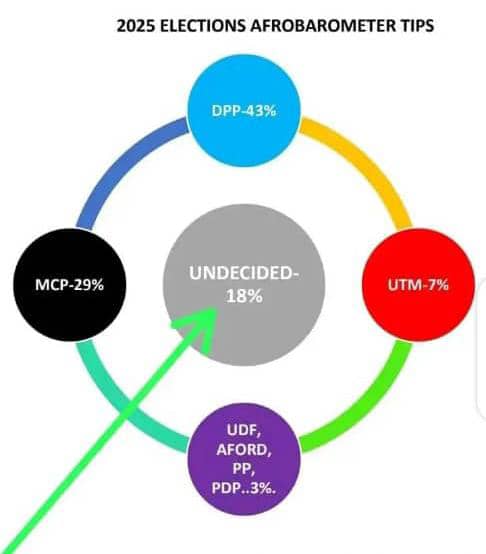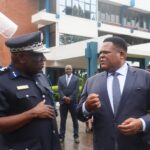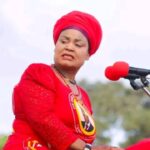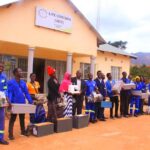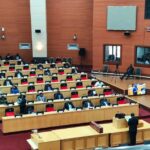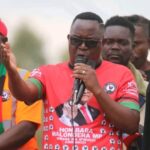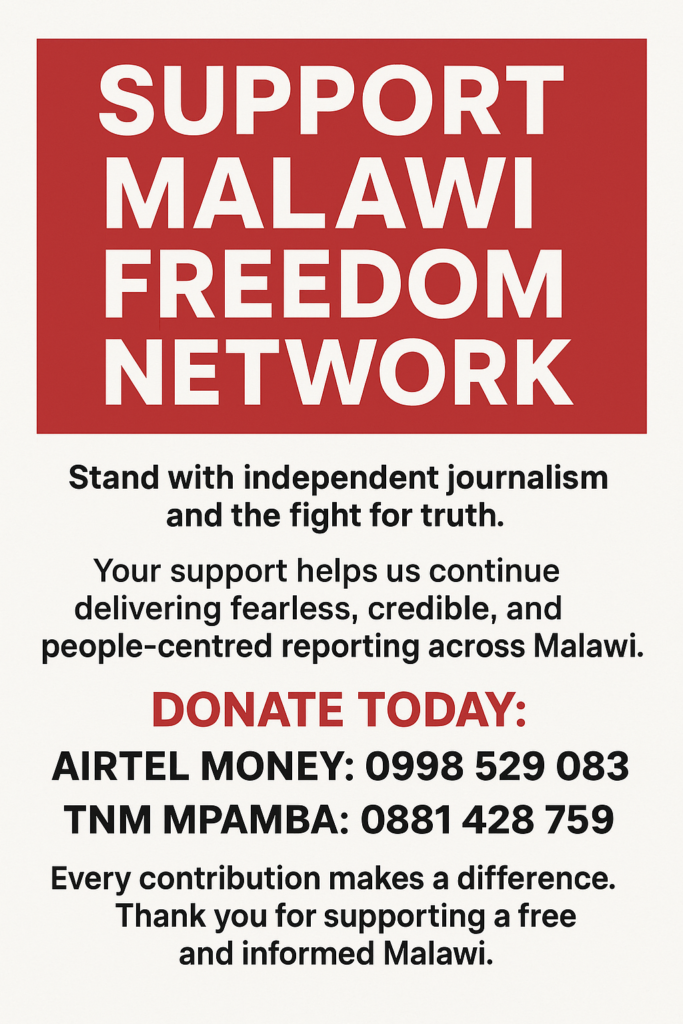By Burnett Munthali
As Malawi prepares for the upcoming elections, the latest Afrobarometer results suggest that 78% of the 7.2 million registered voters have already made their choices, leaving only 18% categorized as undecided or swing voters. This statistic has sparked discussions about the electoral prospects of the Democratic Progressive Party (DPP) and the ruling Malawi Congress Party (MCP), with analysts pointing to key trends that may shape the final outcome.
A message sent to Malawi Voice’s Facebook inbox highlights the crucial role of swing voters in determining the election results. According to the sender, history shows that ruling parties struggle to win over undecided voters, especially when the economy is underperforming. In Malawi, swing voters are often found in urban areas, many of whom are university graduates or individuals well-versed in economic and governance issues.
The analysis suggests that DPP is currently in a stronger position to reclaim power, especially if it strategically partners with the Alliance for Democracy (AFORD) from the outset. Such a coalition could potentially eliminate the possibility of a runoff and secure a decisive victory with approximately 60% of the votes.
The prevailing economic conditions appear to be working against MCP, which faces significant voter dissatisfaction due to rising costs of living. The author of the message argues that voters will be asking President Lazarus Chakwera one fundamental question: “Why should I vote for you when a bag of maize flour costs K100,000 while my salary remains at K90,000?” This question encapsulates the frustration of many Malawians struggling with economic hardships, a factor that could heavily influence the election results.
MCP’s confidence in retaining power, often expressed through the slogan “Boma ndi lomweli” (This is still the government), may prove to be its biggest weakness. If the party underestimates voter discontent, it risks losing crucial support among undecided voters who could swing the election in favor of the opposition.
With just months remaining before Malawians head to the polls, the battle for the swing vote will be decisive. While DPP appears to have the advantage, its success will depend on how well it consolidates alliances and presents itself as a viable alternative to the current administration. On the other hand, MCP must urgently address economic concerns and avoid overconfidence if it hopes to secure re-election.
As political dynamics continue to shift, one thing remains clear: the 2025 elections will be a highly contested battle, with swing voters playing a crucial role in determining the country’s leadership for the next five years.
